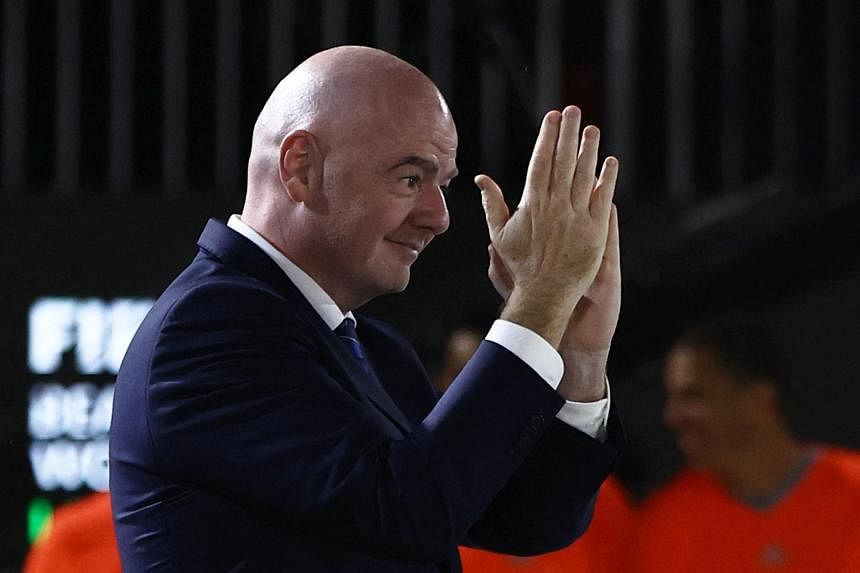LONDON – A controversial trial featuring blue cards was absent from the latest changes made by football’s lawmakers to improve player behaviour on March 2.
It was reported in February that blue cards were set to be part of a trial of sin bins at higher levels of the professional game.
Details of the trial were believed to have been close to publication by the International Football Association Board (Ifab) in February.
But the negative response to the proposal from English Premier League managers, like Liverpool’s Jurgen Klopp and Tottenham Hotspur’s Ange Postecoglou, played a role in the trial details being delayed.
Fifa president Gianni Infantino said on March 1 that he “was not aware” blue cards were intended to be used in the trial and said his organisation was “completely opposed” to the idea.
Sin-bin yellow cards will continue to be trialled at grassroots level instead.
But Mark Bullingham, chief executive officer of England’s Football Association, said they were still refining the protocol at grassroots level.
“When we announced everything in November, there was no backlash but there was quite a lot of support for sin bins,” Bullingham said.
“For some reason the Premier League managers thought it would apply to them, that wasn’t the intention. We’ve said, let’s get the protocol right before we move it up the pyramid. We need to get it right, away from the pressure of the cameras and the fans.”
Ian Maxwell, chief executive officer of the Scottish Football Association, said the introduction of sin bins was an effort to eradicate bad behaviour.
“We’ve seen referees right across the game and the abuse they get is unacceptable,” he added.
The Ifab confirmed trials below the top-two tiers to improve behaviour, with only a team’s captain allowed to approach the referee.
The time limit for goalkeepers holding the ball will also be increased to eight seconds in a trial, with possession reverting to the opposing team if they hold onto it for longer. The current law allows them to hold the ball for six seconds.
“We’re seeing an increasing trend and time being wasted in the game,” Maxwell said.
“It’s certainly a difficult situation under the current laws for the referees to manage, there’s a reluctance to administer fouls for that.”
Meanwhile, additional permanent concussion substitutions will be enshrined in football’s laws, but it remains an option which is up to organisers of individual competitions to implement, said the Ifab.
The additional permanent concussion substitution law will come into effect from July 1 and the Ifab also confirmed additional trials.
“Regarding permanent concussion substitutions, the trial we’ve run is effectively concluded and that is now enshrined in the laws of the game,” said Maxwell.
“It will be up to competitions to determine if they want to use permanent concussion substitutions as per the protocol.”
The protocol allows a team to replace a player with a suspected head injury without it counting towards their allocation of substitutes. AFP, REUTERS

